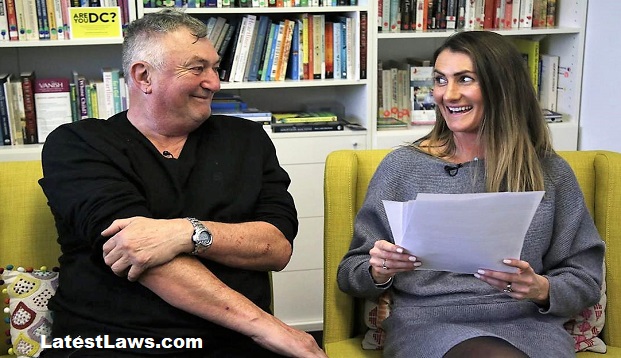August 5, 2018:
The Donor had been promised that their sperm donation would be anonymous.
For Peter Peacock the news arrived in the form of a registered letter from The Victorian Assisted Reproductive Treatment Authority (VARTA).
The matter concerns a Project at Prince Henry's Institute at Melbourne clinic where he'd donated sperm nearly 40 years ago.
He had been promised that his sperm donation would be anonymous.
For decades it was, until a new law in one Australian state retroactively erased the anonymity of sperm and egg donors. Their offspring now have the legal right to know who they are.
Behind it all was a quest for the truth by people whose lives began in a lab in an era where the sperm and egg donation industry was swathed in secrecy.
The result, for some of those children, was a deep desire to complete the puzzle of their identity.
One Australian woman, Kerri Favarato, says the yearning she felt to find her donor was best captured by a Welsh word, "hiraeth." It means, loosely, a homesickness for a place you may have never been, a longing for something you never had.
Recognition of the rights of these children has grown, much like the generally accepted view that adopted children should have the right to know their birth parents.
Some countries, including Australia, have now banned anonymous donation. But Victoria is only the second jurisdiction in the world to impose a law retroactively stripping away anonymity without the donor's consent. Switzerland was the first to do so in 2001, but many donor records were destroyed.
When they met the warmth between them was instant. Their similarities went beyond looks. Both love Shiraz and antipasto, cheer for the same football team, and have laid-back attitudes and a cheeky sense of humor.
Though Peacock remembers telling his daughters about his donations when they were teens, they had apparently thought he was kidding.
Legally, Peacock had the right to request the identities of his offspring. But did he really want to invite another 14 children into his family? And if he did request their names, they would be notified.
Most children conceived from anonymous donations are never told about their heritage, and Peacock couldn't imagine dropping such a bomb on them.
Despite the surprises unleashed by the law, most of the responses from donors and their offspring have been positive, says Louise Johnson, VARTA's CEO. Around 80 people have applied for the identities of their donors since the law went into effect, and the majority of donors have agreed to exchange information. No one has broken a contact veto.
They looked at each other for a little while, dumbfounded, then began chatting like old chums. "You want a drink?" Peacock asked, beckoning her to the trunk of his car, where he'd smuggled in a thermos of Shiraz. They settled down to talk. It all felt so natural.
"Her father is the one who brought her up, loved her, changed her nappy," he says. "I'm not her father, I'm not her uncle, but I'm still part of her. ... She is a part of me."
Sitting with her at a cafe, he looks at her and wonders: Who am I to you? Who are you to me?
He raises a toast: "Cheers ... Girl? Daughter? It?"
"Whatever it is," Diamond says with a laugh. And they drink.
Source TVNZ
Picture Source :

























